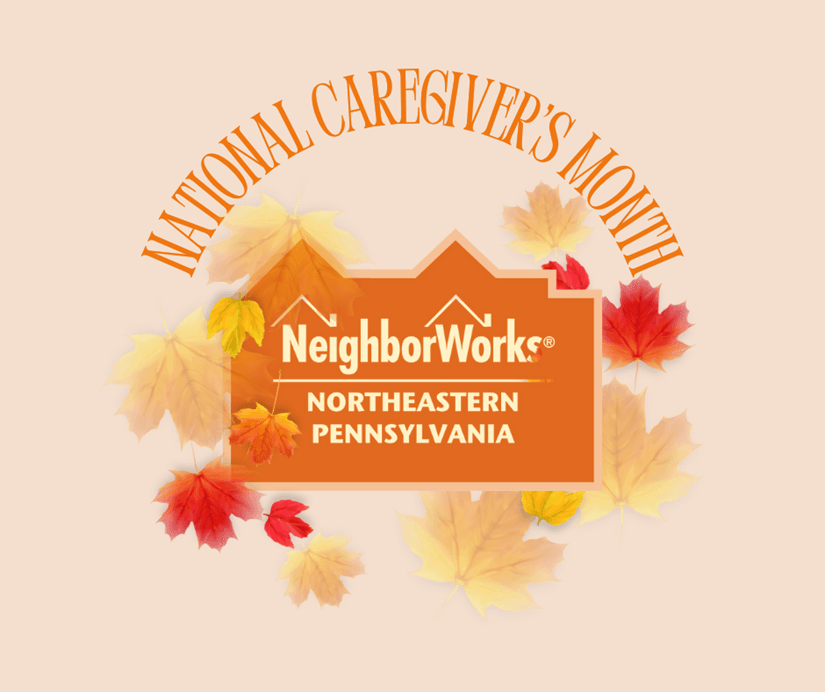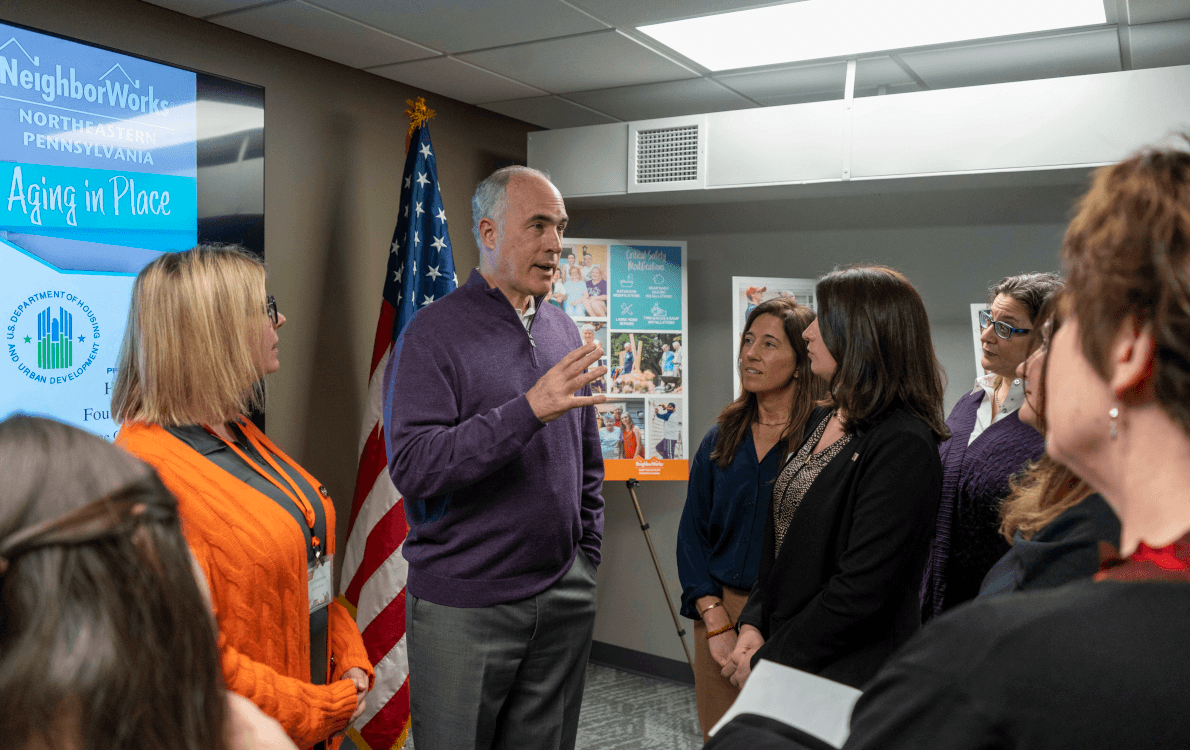
Every month, NeighborWorks Northeastern PA’s Aging in Place program helps put the pieces together to keep older adults in the homes and neighborhoods they love. Together, the occupational therapy practitioners, certified aging in place specialists, construction managers and contractors carefully modify homes and create environments in which the older adults can continue to thrive. We know, though, that that is not the full picture! Day in and day out, many of our older adults depend on caregivers of many kinds to support their everyday living tasks within homes and communities. November is National Caregiver Month and NeighborWorks is thrilled to champion these partners! Caregivers are an essential piece of the puzzle! They are the fit that keeps the picture together!
If you are a caregiver, full-time or part-time - you matter! Caregivers as a group are more “seen” than they ever have been before. AARP and the National Alliance for Caregiving report that there has been a 50% increase in caregivers since 2015 (2025). In fact, the July 2025 Caregiving the US Research Report states, “Today, roughly one in four American adults (24 percent) is a family caregiver.” This report found that half of these caregivers report caregiving as something that gives them a sense of purpose or meaning in life. Caregiving provides an opportunity to connect or re-connect with a loved one during a stage of life that may allow for slower and deeper conversation, revisiting and retelling cherished memories and family stories, or possibly allows a family member to connect in ways not possible before.
Caregiving, however, is not without its challenges. The AARP/NAC report states, “nearly 25 percent of caregivers indicate difficulty in caring for themselves because of caregiving,” and that “feelings of isolation are common for caregivers.” While doing the act of caregiving, our caregivers need cared-for. Here in Pennsylvania our caregivers have a new tool to do just that. The PA CareKit is a matrix of both practical organizational tools, safety recommendations, disease management solutions and even communication tips! Until now, there wasn’t a manual on how to be each older adult’s caregiver and at the same time a unique individual - Pennsylvania aims to change that! If caregiving is a journey, it starts with a step … 5 steps, to be precise! The PA Carekit walks you through The First 5 Steps, A Get Started Guide to Caregiving. Steps like understanding your role, gathering information, strengthening the support system, making a plan and … taking care of yourself! Rather than giving you one more thing to do, these steps are guided and doable tasks that create a big picture guide for the journey. Give it a try: The First Five Steps Resource Guide. While checking out the PA Carekit, take a moment and complete a brief survey of your family’s unique needs! Once complete, you will receive a report of resources tailored to you and your family’s needs. As we know, families and their experiences with aging are unique! The Understanding Your Needs Quiz is finally a way of accessing specific and local resources to provide practical solutions just for you.
While these pieces of the puzzle are important and helpful, caregivers are reporting isolation and feelings of loneliness, and this cannot be ignored! Without the ability to simply leave the home and the loved one(s) they care for, it is important to have alternative ways of accessing connection. Although a new learning experience for some, online and virtual support groups can allow for connecting with others while remaining close to the family member who needs care. The AARP Caregiving Community can be accessed on their website or in a Facebook group and is rated “very easy” to access - and is free. Caregivers may peruse the frequent comments and choose whether to join in or just observe! AlzConnected, also a free resource and rated “very easy” to access, is an online group message board supported by the Alzheimer’s Association. Discussion boards are available for both caregivers and individuals with dementia, and are available in English or Spanish. AlzConnected also offers groups that can be joined to connect with others who share similar concerns or interests. Before you begin, please remember to protect your privacy! Be careful of the personal information you share and never click a link posted or provided by a stranger! Keep the medical details you share general, and be cautious of anyone who offers private help or connections. The best way to stay safe is to access online support on well-known and well-respected platforms! With the right precautions, online community groups can provide rich connection, humor and advice from individuals in similar situations.
Maybe you’re reading this and you are neither an older adult nor a caregiver. You are a piece of the puzzle as well! In our local communities, caregivers can be supported with everyday intentional connections. Grocery stores, banks and doctors' offices are touchpoints to offer connection to our community’s caregivers. A chance to look someone in the eye, offer a genuine connection and then listen. A moment of your time can make a world of difference in reducing isolation that can’t be seen. It’s time for all of us to start using phrases like, “I’ve seen you around - thought I would say hello,” or, “How have you been since the last time we talked?”
So, Happy Caregiver Month! May you find a puzzle piece in this article to help care for the caregiver as well as support your caregiving! Dear reader, whatever your role in the age-in-place process, you are an important piece of the puzzle. We, at NeighborWorks, thank you for your part in the big picture!
Important links found in this article:
AARP. (n.d.). Caregiving community discussion group. AARP. https://community.aarp.org/t5/Caregiving/ct-p/Caregiving?utm_source=chatgpt.com
AARP & National Alliance for Caregiving. (2025, July 24). Caregiving in the US 2025: Key trends, strains, and policy needs. AARP. https://www.aarp.org/pri/topics/ltss/family-caregiving/caregiving-in-the-us-2025/
Alzheimer’s Association. (n.d.). ALZConnected®: A free online community for people affected by Alzheimer’s or another dementia. https://alzconnected.org
Pennsylvania Department of Aging. (n.d.). PA CareKit – Personal, practical, and ready when you are. Commonwealth of Pennsylvania. https://www.pa.gov/agencies/aging/pa-carekit
Melanie Brock is a Certified Occupational Therapy Assistant (COTA/L) with 26 years of experience, including 15 years dedicated to working with older adults in both inpatient, outpatient and community settings. She currently works at Lackawanna College's Occupational Therapy Assistant program both teaching and as the Academic Fieldwork Coordinator. Her expertise centers supporting older adults and their caregivers in embracing change and adapting how they engage with daily tasks to ensure safety, independence, and quality of life. Melanie recently completed her Certified Live in Place Professional (CLIPP) certification, further enhancing her ability to recommend effective, evidence-based home modifications that allow the home to support successful aging in place. Melanie is committed to helping individuals remain in their homes and neighborhoods safely and comfortably for as long as possible.




